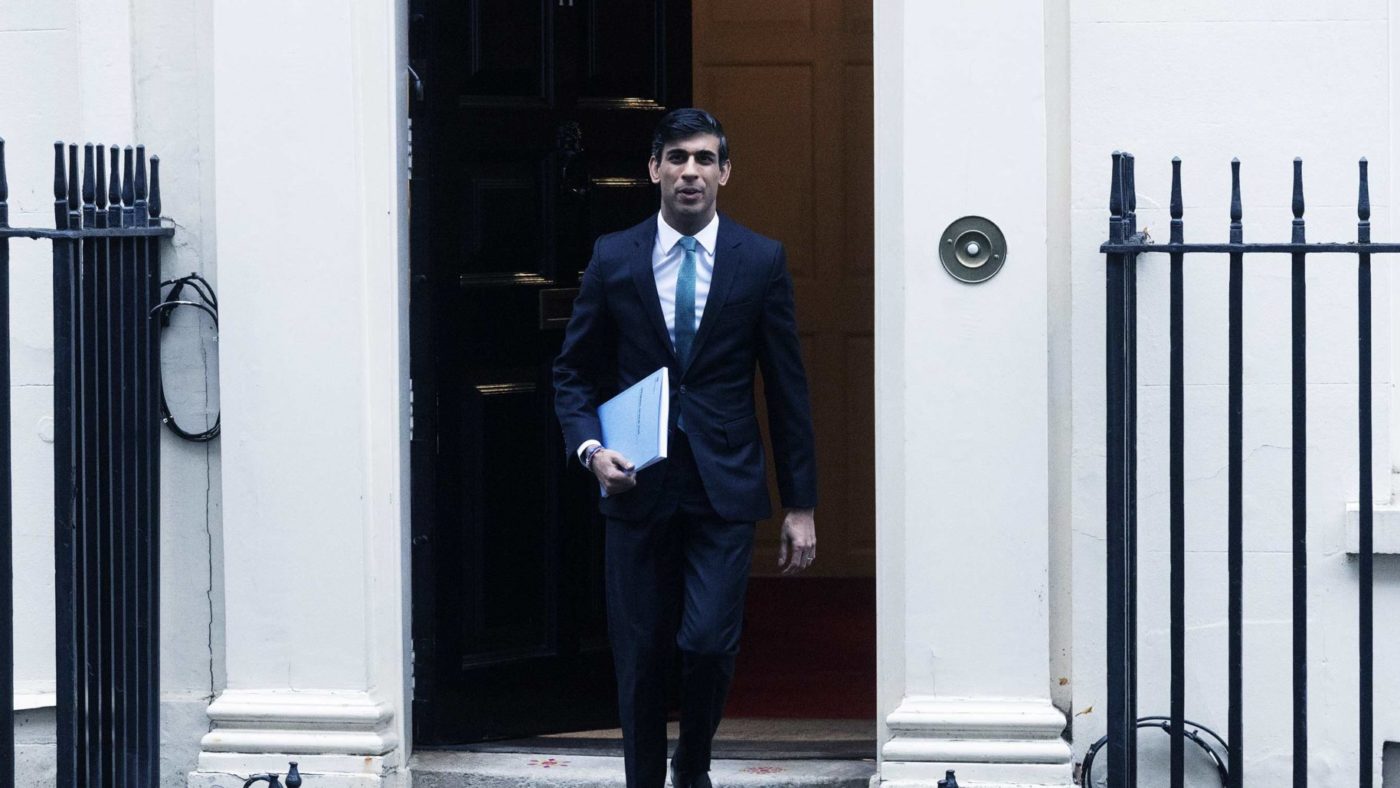As big political speeches go, this week’s set piece from Keir Starmer was more whimper than bang. A mixture of appeals to fiscal responsibility, hoary clichés about the Attlee government and a long list of social ills visited on the country by the heartless Tories – all tied together with the routine claim that the pandemic has ‘shifted the axis on economic policy’.
According to Sir Keir, our various problems – from inequality to underfunded public services – are the result of policies ‘guided by the notion that government can’t interfere with the market’. He made a similarly boilerplate argument during the Labour leadership campaign, when he claimed that the ‘free market model has failed. Trickle-down didn’t happen’.
There’s just one problem: the neo-Thatcherite opponents Starmer likes to conjure are a figment of his imagination. In reality, he faces a Prime Minister who is fond of eye-catching grands projets and totally comfortable with dolloping out public money. Indeed, Boris Johnson’s ideologically heterodox approach owes far more to Tony Blair than the Iron Lady.
Nor is Johnson’s ease with big spending some kind of pandemic-inspired Damascene conversion. Well before we entered this economic hellscape, the PM had promised billions of extra funding for the NHS, tens of thousands more police officers and ‘millions more invested every week’ in science, research and infrastructure.
That certainly presents a political problem for Labour. Faced with a Conservative government that tacks left on economics and right on culture (‘hang the paedos, fund the NHS’, as some put it), Starmer’s best chance of differentiation is not policy, but presentation. There too he treads a thin line between serious, sober and competent on the one hand, and dull and forgettable on the other.
But his dilemma is also a big challenge for market liberals.
The uncomfortable truth is that at the moment, arguments for lower taxes and a smaller state struggle to get a hearing. Even faced with a huge debt pile and after a year of almost total state control of the economy, the debate seems to be less about the desirability of government intervention than its extent.
What we do hear about taxes, for instance, is mostly kite-flying about which ones the Chancellor will raise in his forthcoming budget, despite near unanimity among economists that now is not the time to do so. Earlier this week we had a senior Tory MP pondering a ‘one-off wealth tax’ – no wonder Labour is struggling to differentiate itself on policy.
Equally concerning are reports that Rishi Sunak may raise corporation tax in his upcoming Budget. At a time when getting millions of people back to work will be paramount, it seems perverse to be increasing costs for businesses (and, as our editor-in-chief notes here, the idea that Britain already has strikingly low corporate taxes is hugely misleading).
If there is cause for optimism, it lies in the prospect of an economic recovery led not by state spending, but pent-up consumer demand. The case for a private sector-led post-Covid boom has been put exuberantly by Bank of England chief economist Andy Haldane, who points to a cheering combination of household savings and a ‘war chest’ of corporate cash itching to be spent once the economy opens back up.
Nor should the Budget debate just be about tweaking taxes. There’s a host of market-friendly measures Rishi Sunak could roll out in a fortnight’s time, not least the pro-enterprise policies set out in this week’s ‘Northern Big Bang’ report from our colleagues at the Centre for Policy Studies.
If there was one line in Keir Starmer’s speech this week that resonated, it was that the upcoming Budget is a ‘pivotal moment’. Ordinarily that might feel cliched, but in this case it has the ring of truth. After a year of endless pain and acute economic damage, this is the chance for Sunak to set the tone not just for the rest of this Parliament, but for post-Covid Britain. He could do worse than call Starmer’s bluff and employ a bit of Thatcherite radicalism.
Click here to subscribe to our daily briefing – the best pieces from CapX and across the web.
CapX depends on the generosity of its readers. If you value what we do, please consider making a donation.


